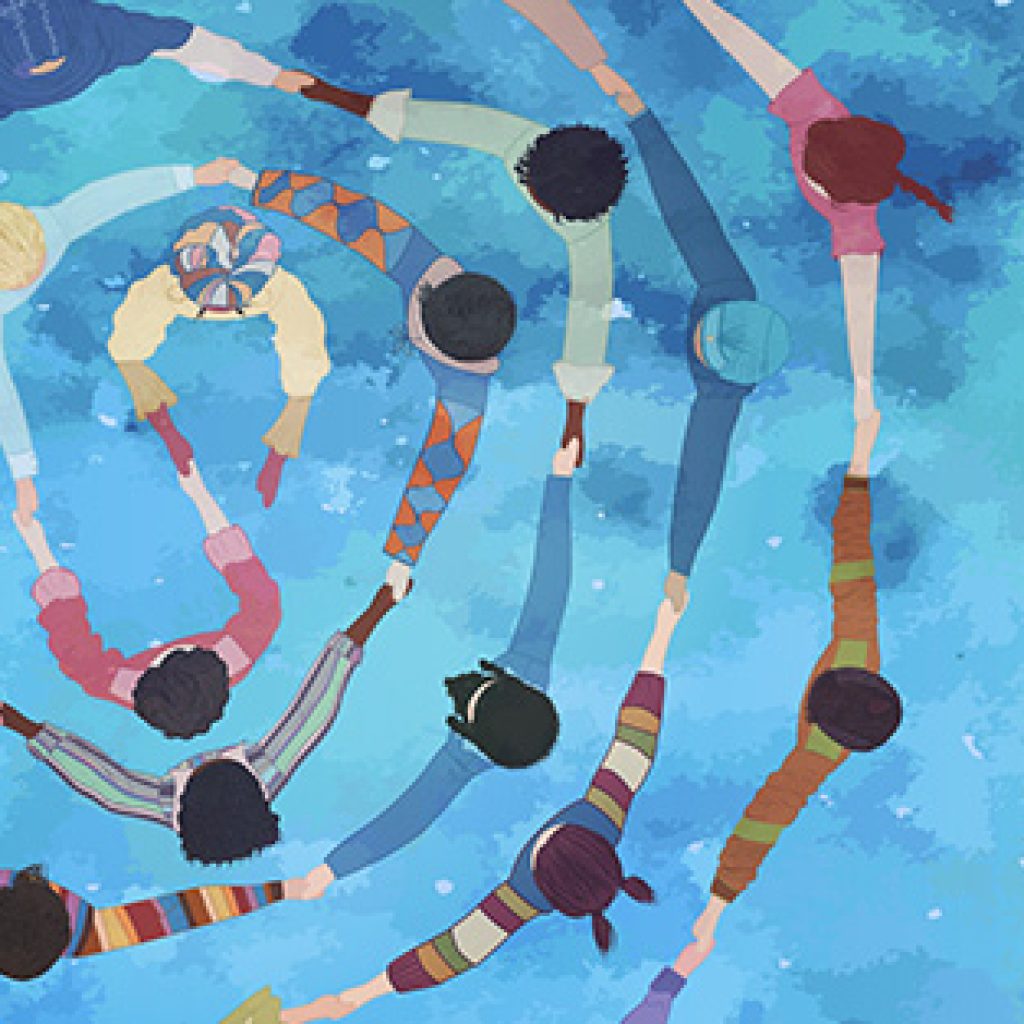6 Important Coping Strategies to Help Navigate the Grieving Process
August 30th is National Grief awareness day, dedicated to raising awareness of the many ways people cope with loss. Coping refers to a person’s ability to deal effectively with something difficult. It can also be used to describe how others interpret and perceive the behaviors and actions of a person faced with challenges or difficulties. For example, a person inquiring of another’s well-being might ask: “How are they coping?” to ascertain that person’s mental, physical, or emotional state amid or following a challenging situation. Loss of any type can create a deep sense of grief.
Grief is a common denominator of being human. No matter your race, gender, socioeconomic status, or belief system, everyone will experience grief at some point in their lives. Grief is a natural reaction to loss (e.g., death of a loved one, loss of a job, changes in identity). The experience of grief also includes what could have been “if only this or that had been different.” Although grief may be a natural reaction, it can be difficult to navigate both personally and professionally.
The experience of grief is unique to each person and the loss they’ve had. Whether a loss is expected or unexpected, the experience of personal loss is met with grief, which encompasses a range of responses as diverse as the experience of being human. Based on individual and cultural experiences, there might be a tendency to think that there is a ‘right’ or a ‘wrong’ way to grieve, and if those patterns are not followed, it could lead to discomfort, judgment, and negative feelings toward ourselves or others. When judgment arises, it can be useful to engage in self-reflection, self-awareness and mindfulness practices including self-compassion.
So, if there isn’t a right or wrong way to cope with loss, and the experience of grief is diverse and different for every person and every loss, how can we support people, professionally and personally? Understanding some of the ways people report coping with their own experience of grief might expand the toolbox for supporting ourselves or others. In my research, and coaching practice, I have the privilege of hearing people’s stories of loss, grief, and coping. These stories have common threads falling into the following categories: connection, physical, emotional, mental, spiritual and mindfulness.
 Connection
Connection
Grief has been described as profoundly isolating. The grieving person might not want to burden the people in their network. The people in the network might not know what to say or what to do. Talking about the loss, understanding, and acknowledging any feelings of discomfort that might arise, and normalizing grief and loss conversations might be ways to make it less lonely for someone going through it.
One of questions I get asked the most is “How do I support someone who is grieving?” followed by “I don’t know what to say”. You might not know the ‘right’ thing to say, I’d argue that there isn’t a right thing to say and that is OK! Name it. It is OK to say, “I don’t know what to say, and I am here for you”. Listen to the person, do not try to solve this for them, there isn’t a way to fix this experience. Listen for what is most helpful to the person, not what you think is the most helpful or what research or society says is the most helpful. When there is a mismatch between what is needed and what is given, support is not effective.
As for what to do to support someone, simply sit with them, no need to do anything special, it is enough to sit by their side. If you want to offer support, make it specific – “I’m going to the store, what can I pick up for you?”. Invite them to tell a story or share a memory of their loved one, if they feel up to it. If you knew the person who died, share a memory of that person. If a person mentions that someone in their life died, ask their name. By connecting with the grieving person, you are helping them to cope. Remember, you will not ‘make’ someone sad by asking about the person or situation that was lost, they are already sad. They might not want to talk about it in the moment, but my research participants reported that being asked to share was enough. And when they did share stories about the love they lost, they reported a sense of keeping their loved one alive and known to others.
Each person’s grief is as unique as their fingerprint. But what everyone has in common is that no matter how they grieve, they share a need for their grief to be witnessed. That doesn’t mean needing someone to try to lessen it or reframe it for them. The need is for someone to be fully present to the magnitude of their loss without trying to point out the silver lining.
– David Kessler (posted by Brené Brown 2021)
 Physical
Physical
Grief can sometime trigger the fight, flight, or freeze response. To help regulate the nervous system, it is supportive to move the body. Author Elizabeth Gilbert talked about dancing with grief after losing her wife, Rayya. Each morning after Rayya died, she would turn on Spotify and whatever song came on, she would dance to it.
Other people report that working out or going for walks help them cope with grief in that moment. Some people prefer solitary physical activity and some stated that the ‘women at their gym’ or a walk with their partners was helpful for their grief process and coping.
Grief is a living energy field that wants to move through you (the way storms move across the summer sky), and grief can’t move unless you allow it to. Otherwise, it settles in your bones, and makes you sink in pain. You can help grief move through you with music and with dance — this is what my friends and I have learned. Those of us who loved Rayya will sometimes come together and dance out our pain, or sing out our pain…just to MOVE, so that our grief can move through us.
– Elizabeth Gilbert (8, 2018)
 Emotional
Emotional
Grief comes in waves. There might be a tsunami of emotions or a gentle wave of tenderness and remembering. Emotions related to grief might be confusing or feel overwhelming. It is important to remember that grief is not a linear process and that all feelings are valid. Coping might look like giving a permission slip to yourself or another person to say that it is OK to feel all the things. Permission to feel the way you feel. Not rushing it for someone or giving platitudes – “they lived a long life” even if this is true, the grieving person has had the gift of that person in their life for a long time. It is painful to have that gone. “They are in a better place” the griever wants the person with them… “they are no longer suffering” of course, no one wants someone they care about to suffer! And it doesn’t make the loss any less painful. Normalize the ‘yes/and’ of life. Joy can coexist with grief.
I have learned that Grief is a force of energy that cannot be controlled or predicted. It comes and goes on its own schedule. Grief does not obey your plans, or your wishes. Grief will do whatever it wants to you, whenever it wants to. In that regard, Grief has a lot in common with Love.
– Elizabeth Gilbert (6, 2018)
 Mental
Mental
Sometimes it can be difficult to know what we are thinking when in deep grief. The mind is activated with memories, regrets, wishes and ‘if onlys’. One way to tap into the subconscious, clarify feelings, and become aware of any underlying sentiments is to write using pen and paper. Writing about the loss can be cathartic, it is important to not censor what is being written. Set a timer for 5-10 minutes and write without stopping to edit or critiques. Writing a letter to the subject of the loss is another powerful way of coping. I first used tool in 1998, after a breakup with my long-term boyfriend. And again in 2005, after my grandma died. I wrote detailed letters about the emotions I was experiencing, memories I held – all of them – not just the good ones.
 Spiritual
Spiritual
Navigating the grieving process can be supported through creating ceremony and rituals that incorporate the above strategies. Ritual and ceremony generate a sense of belonging, can provide closure, and provide structure for engaging with life circumstances. Clinicians might encourage their clients to develop their own ceremony or ritual through the introduction of the five areas of coping. They could invite their client do try one of the coping strategies in session or as home practice. Through self-reflection, the client will learn to identify the area support is most needed in that moment. Grief ritual ideas: sharing stories, visiting meaningful places, parties, photos, writing, creating shrine, and music.
Don’t ever let anyone tell you how to mourn. You get to create your own ceremonies. And you get to keep creating them. … All of us have suffered unbearable losses. All of us will. We can’t bear it, so we don’t bear it; we release it. We sing it out, dance it out, weep it out. Sometimes grief needs to be loud as hell. Sometimes you have to blow the roof off in rage and sorrow. The one thing grief cannot be is politely contained. Do whatever you have to do to let that pain find its way through and out.
– Elizabeth Gilbert (2020)
 Mindfulness
Mindfulness
The practice of mindfulness has been shown useful both for those who are grieving and those supporting another’s experience of grief. Mindfulness is the process of bringing nonjudgmental awareness to present the moment – paying attention on purpose in a particular way (Kabat-Zinn, 1990). People practice mindfulness through a wide variety of Attention Focusing Practices (AFP), including meditation, yoga, walking, and swimming. Through engaging with AFPs, people are able to concentrate the mind, leading to increased awareness of the present moment, including awareness of emotional states moment to moment (Guendelman, Medeiros, & Rampes, 2017; Roemer, Williston, & Rollins, 2015). Therefore, practicing mindfulness may lead to increased awareness of the experience of grief and what is needed moment to moment. With increased self-awareness people are more easily able to identify what would be supportive to them.
Grieving mindfully can be understood as making the decision to allow yourself to mourn, and to fully experience the lessons of grief with the goal of living life better.
– Sameet Kumar
Research and shared stories created the framework for these 5 key coping strategies. This is not an exhaustive list, and it is important to remember and normalize that what is needed to navigate the grieving process will vary from day to day, and moment by moment. Grief is not a linear process; it is as unique as we are.
Your Turn: What are some ways that you or your clients have coped with grief? Please share in the comment section, it will add to our collective grief toolkit.
Guest Blogger: Theresa B. Skaar, PhD

Dr. Theresa B. Skaar is an educator and mindfulness instructor. Dr. Skaar is the Director for the Gerontology Academic Program (GAP) at the University of Nevada, Reno (UNR). She is qualified to facilitate both Mind-Body Skills and Mindfulness-based stress reduction (MBSR) courses. Theresa explores, teaches, and researches sensitive topics such as grief, aging, death, and dying. She is passionate about connection, and the experiences that we all share that can be difficult to talk about. Theresa is committed to bringing light to these challenging topics.
Additional resources may be found on the CASAT OnDemand Resources & Downloads page.
This article was developed by Theresa B. Skaar, PhD. Feel free to use, link to, or distribute this information. A link to our site and attribution would be much appreciated.
References:
Brown, B. [brenebrown]. (2021, February 23). Grief Requires Witnessing. Retrieved from https://www.instagram.com/p/CLphRWjJWaI/
Gilbert, E. [Elizabeth_gilbert_writer]. (2020, January 4). [Photo from Rayya’s memorial service]. https://www.instagram.com/p/B67P4-vhxjq/
Gilbert, E. [Elizabeth_gilbert_writer]. (2018, June 6). [Photo of Elizabeth Gilbert and Rayya on the morning of their commitment ceremony]. https://www.instagram.com/p/Bjr8FFTDS3j/
Gilbert, E. [Elizabeth_gilbert_writer]. (2018, August 2). [Grief is a full body experience]. https://www.instagram.com/p/Bl-z_YFAEmv/
Kabat-Zinn, J., & University of Massachusetts Medical Center/Worcester. Stress Reduction Clinic. (1990). Full catastrophe living: Using the wisdom of your body and mind to face stress, pain, and illness. New York, N.Y: Pub. by Dell Publishing, a division of Bantam Doubleday Dell Pub. Group.
Kumar, S. M. (2005). Grieving mindfully: A compassionate and spiritual guide to coping with loss. New Harbinger Publications.
Morris, A. [angelaemmamorris]. (2022, April 22). [Grief the ultimate undoing]. https://www.instagram.com/p/CcrDitYPhEQ/
Roemer, L., Williston, S. K., & Rollins, L. G. (2015). Mindfulness and emotion regulation. Current Opinion in Psychology, 3, 52-57.
Skaar, T. B. (2021). The Experience of Grief: The Role of Mindfulness, Communication, and Social Support (Doctoral dissertation, University of Nevada, Reno).
Blog Post Tags:
Related Blog Posts
Related Learning Labs
Related Resources
.
- Buscar Tratamiento de Calidad para Trastornos de uso de Sustancia (Finding Quality Treatment for Substance Use Disorders Spanish Version)
- Finding Quality Treatment for Substance Use Disorders
- Focus On Prevention: Strategies and Programs to Prevent Substance Use
- Monthly Variation in Substance Use Initiation Among Full-Time College Students
- The National Survey on Drug Use and Health (NSDUH) Report: Monthly Variation in Substance Use Initiation Among Adolescents








